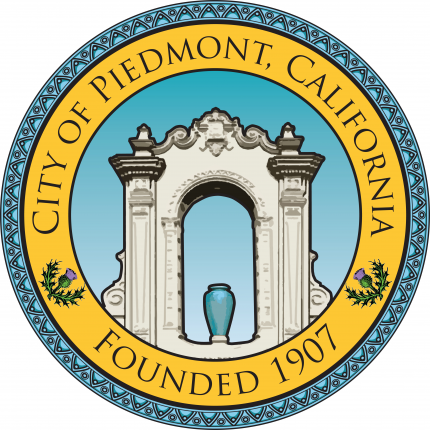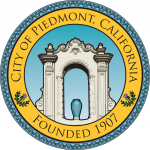How Emergency Management Jobs Help Save Lives: A Guide for Job Seekers

What Are Emergency Management Jobs in Government Agencies?
Emergency management careers in government agencies are crucial roles dedicated to protecting communities and coordinating responses to disasters and crises at local, state, and federal levels. Read on to find out if a job in this field is the right job for you.
These positions focus on safeguarding public safety and minimizing the impact of emergencies through careful planning, efficient response, and effective recovery efforts.- Local government: City or county emergency management offices
- State government: State emergency management agencies
- Federal government: Federal Emergency Management Agency (FEMA) and other federal departments
- Developing and maintaining emergency operations plans
- Coordinating with various government departments and agencies
- Managing emergency operations centers during crises
- Allocating resources and personnel during emergencies
- Conducting risk assessments and hazard analyses
- Implementing public education and awareness programs
- Overseeing disaster recovery and mitigation efforts
- Ensuring compliance with relevant laws and regulations

Imagine being the person who designs an early warning system that saves thousands of lives during a tornado, or the one who coordinates a multi-agency response to a major flood. These are real examples of the critical work government emergency managers do. Did you know that government emergency management isn't just about responding to disasters? A significant part of the job involves prevention, preparedness, and helping communities become more resilient. Your work could stop a crisis before it even begins.
Government emergency managers must stay updated on the latest technologies and best practices. From using advanced weather modeling to predict severe storms to leveraging social media for public communication during crises, these professionals are at the forefront of applying innovative tools to protect citizens.
As climate change increases the frequency and severity of natural disasters, and as our society faces new challenges like cybersecurity threats, the role of government emergency management professionals becomes ever more vital.The Impact of Emergency Management on Communities
Government emergency management professionals play a pivotal role in safeguarding lives, protecting property, and ensuring the resilience of communities in the face of disasters and crises. Their work touches every aspect of community life, often in ways that citizens may not immediately recognize. Emergency managers are at the forefront of protecting public safety. They develop early warning systems for natural disasters, create and implement evacuation plans, coordinate search and rescue operations, and ensure the continuity of essential services during crises.

But emergency management goes beyond immediate response. These professionals work to make communities more resilient by conducting risk assessments to identify vulnerabilities, implementing mitigation strategies to reduce potential damages, educating the public on preparedness measures, and developing long-term recovery plans.
The work of emergency managers also helps safeguard local economies by minimizing disruptions to businesses during disasters, facilitating rapid recovery efforts to get communities back on their feet, and managing disaster relief funds and resources effectively. Emergency managers serve as the crucial link between various government agencies, non-profit organizations, and the private sector. This coordination ensures a unified and efficient response to emergencies, maximizes the use of available resources, and reduces duplication of efforts and potential conflicts.
In times of crisis, communities look to their leaders for guidance and support. As an emergency manager, you could be that beacon of hope and stability when it's needed most.
Emergency management influences long-term community planning and development by advocating for resilient infrastructure, informing land-use decisions to reduce vulnerability to hazards, and promoting sustainable development practices. Emergency managers also play a crucial role in ensuring that all community members, especially vulnerable populations, are protected and supported during crises. They develop inclusive emergency plans, ensure equitable distribution of resources and assistance, and address the unique needs of diverse community groups.
Emergency management isn't just about responding to disasters – it's about creating stronger, more equitable communities. Your work could help ensure that no one is left behind when disaster strikes.The impact of emergency management on communities is profound and far-reaching. From saving lives in immediate crises to shaping the long-term resilience and development of communities, emergency managers are instrumental in creating safer, stronger, and more prepared societies. As you consider a career in emergency management, remember that your work could be the difference between chaos and order, between devastation and swift recovery. Are you ready to take on this critical role and make a lasting impact on your community?
Skills Required for Success in Emergency Management
Success in government emergency management roles requires a unique blend of skills that combine leadership, analytical thinking, and interpersonal abilities. These professionals must be prepared to handle high-pressure situations while maintaining a clear head and a steady hand.
Ever wondered what it takes to be the calm in the storm, the voice of reason in chaos? Emergency management demands a special set of skills – let's explore if you have what it takes to excel in this critical field.Leadership and Decision-Making
Emergency managers must be able to take charge in crisis situations, making quick, informed decisions that can have life-or-death consequences. They need to inspire confidence in their team and the public, even under extreme pressure. This requires not just the ability to lead, but also the courage to make tough calls when lives are on the line.
Communication
Clear, effective communication is paramount in emergency management. These professionals must be adept at conveying critical information to diverse audiences, from government officials and first responders to the general public. They should be skilled in both verbal and written communication and be able to translate complex technical information into easily understandable terms.
Analytical Thinking and Problem-Solving
Emergency situations rarely follow a script. Successful emergency managers must be able to analyze complex situations quickly, identifying key issues and developing innovative solutions on the fly. It also entails factoring in people's civil rights when they face emergencies. This requires a keen analytical mind and the ability to think outside the box when conventional approaches fall short.
Stress Management and Emotional Intelligence
Working in emergency management means dealing with high-stress situations regularly. The ability to remain calm under pressure, manage one's own emotions, and respond empathetically to the stress and trauma of others is crucial. Emotional intelligence helps in navigating the human aspects of disaster response and recovery.
Collaboration and Teamwork
Emergency management is inherently a team effort, involving coordination across multiple agencies and organizations. The ability to work effectively in a team, foster cooperation, and build strong relationships with diverse stakeholders is essential.
Adaptability and Flexibility
In the ever-changing landscape of emergency management, adaptability is key. Professionals in this field must be able to pivot quickly as situations evolve, adjusting plans and strategies in real-time. They should be comfortable with ambiguity and able to function effectively in unpredictable environments.
Technical Proficiency
While not all emergency management roles require deep technical expertise, a basic understanding of relevant technologies is important. This includes familiarity with emergency management software, GIS mapping tools, communication systems, and data analysis platforms.
Cultural Competence and Empathy
Communities are diverse, and emergencies affect different groups in various ways. Successful emergency managers must be culturally sensitive, able to understand and respect diverse perspectives, and ensure that emergency plans and responses are inclusive and equitable.
Project Management
Many aspects of emergency management involve overseeing complex, multi-faceted projects. Skills in planning, organizing, and managing resources are crucial for success in roles ranging from preparedness initiatives to recovery efforts.
Continuous Learning
The field of emergency management is constantly evolving, with new threats emerging and best practices developing. A commitment to ongoing learning and professional development is essential to stay current and effective in this dynamic field.
While some of these skills can be developed through training and experience, others – like the ability to remain calm under pressure or to think creatively in crisis situations – are often innate qualities. As you consider a career in emergency management, reflect on your own strengths and areas for growth. Do you have the foundation to become a skilled emergency manager? With the right combination of natural abilities, education, and experience, you could play a crucial role in safeguarding your community and saving lives.
Education and Training for Emergency Management Roles
Embarking on a career in government emergency management requires a solid foundation of education and ongoing training. The field demands a unique combination of theoretical knowledge and practical skills, with opportunities for continuous learning and professional development.
Formal Education:
While some entry-level positions may only require a high school diploma, many emergency management roles prefer or require a bachelor's degree. Relevant fields of study include:
- Emergency Management
- Public Administration
- Homeland Security
- Public Safety
- Criminal Justice
- Environmental Science
For those aiming for leadership positions or specializations, a master's degree can be highly beneficial. Advanced degrees in Emergency Management, Public Administration, or related fields can provide deeper insights into policy-making, strategic planning, and advanced crisis management techniques.
Certifications:
Professional certifications can significantly enhance your credibility and career prospects in emergency management. Some key certifications include:
- Certified Emergency Manager (CEM) from the International Association of Emergency Managers (IAEM)
- Associate Emergency Manager (AEM) for those early in their careers
- Various FEMA certifications through their Emergency Management Institute
These certifications often require a combination of education, experience, and passing an exam, demonstrating your commitment to the field and your expertise.
Practical Training:
Hands-on experience is crucial in emergency management. Many educational programs incorporate practical elements such as:
- Internships with local emergency management agencies
- Participation in disaster simulations and exercises
- Volunteer work or internship opportunities with organizations like the Red Cross or local Community Emergency Response Teams (CERT)
Ongoing Professional Development:
Emergency management is a dynamic field, requiring professionals to stay updated on the latest trends, technologies, and best practices. Ongoing training opportunities include:
- Workshops and seminars offered by professional organizations
- FEMA's Emergency Management Institute courses (many available online)
- State-specific training programs
- Conferences and networking events in the emergency management community
Specialized Skills Training:
Depending on your specific role or career goals, you might pursue additional training in areas such as:
- Incident Command System (ICS)
- National Incident Management System (NIMS)
- Crisis communication and public information
- Hazardous materials management
- Cybersecurity and critical infrastructure protection
Government-Specific Training:
For those pursuing careers in government emergency management, familiarity with government operations and policies is crucial. This might involve:
- Training on local, state, or federal government procedures
- Understanding of relevant laws and regulations
- Courses on interagency cooperation and coordination
Military Experience:
Many successful emergency managers come from military backgrounds. The leadership, discipline, and crisis management skills developed in the military can translate well to emergency management roles.
As you consider your educational path in emergency management, remember that the field values a combination of formal education, practical experience, and ongoing professional development. Whether you're just starting your journey or looking to advance your career, there are numerous opportunities to enhance your knowledge and skills.
The Future of Emergency Management

As we look to the horizon, the field of emergency management is poised for significant evolution, driven by technological advancements, changing global dynamics, and shifting societal needs. The future of this vital profession promises both exciting opportunities and formidable challenges for those ready to step into the role of community guardians.
Emergency management is calling for innovative minds like yours - just check out the new jobs posted below and fine-tune your resume.






















































